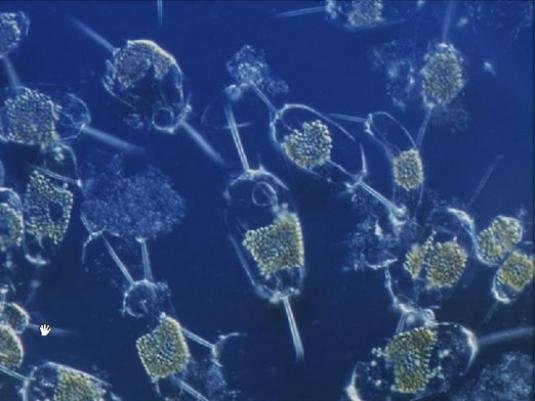What is plankton?

Plankton is the set of billions of sedentary small plant and animal organisms that drift freely in the water and can not, in contrast to nekton, resist the flow of water. By plankton carry bacteria that live in the water, algae (phytoplankton), protozoa, some coelenterates, molluscs, crustaceans, fish eggs and larvae, the larvae of various invertebrate animals (zooplankton).
Some of these organisms, such as algae, plankton always remain. Others, such as fish, lobster, plankton up to as long as they are in the stage of embryonic development. Progeny insects, lay their eggs in water (mosquitoes, dragonflies) - is also a plankton.
Plankton is the food for the majority of other aquatic animals. It is available in both fresh and salt water.
The term "plankton" offered a well-known German scientist Victor Hensen at the end of the XIX century. Translated from the Greek plankton means "wandering" or "free floating".
Nice post!